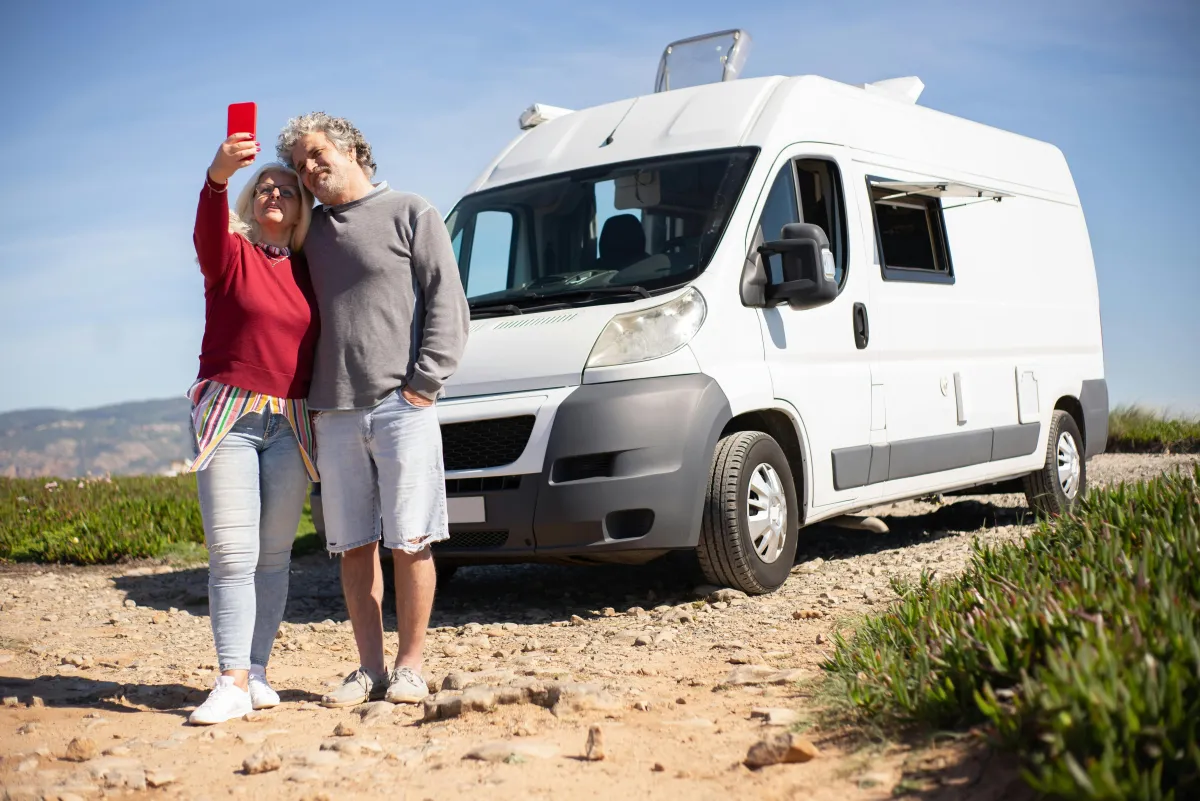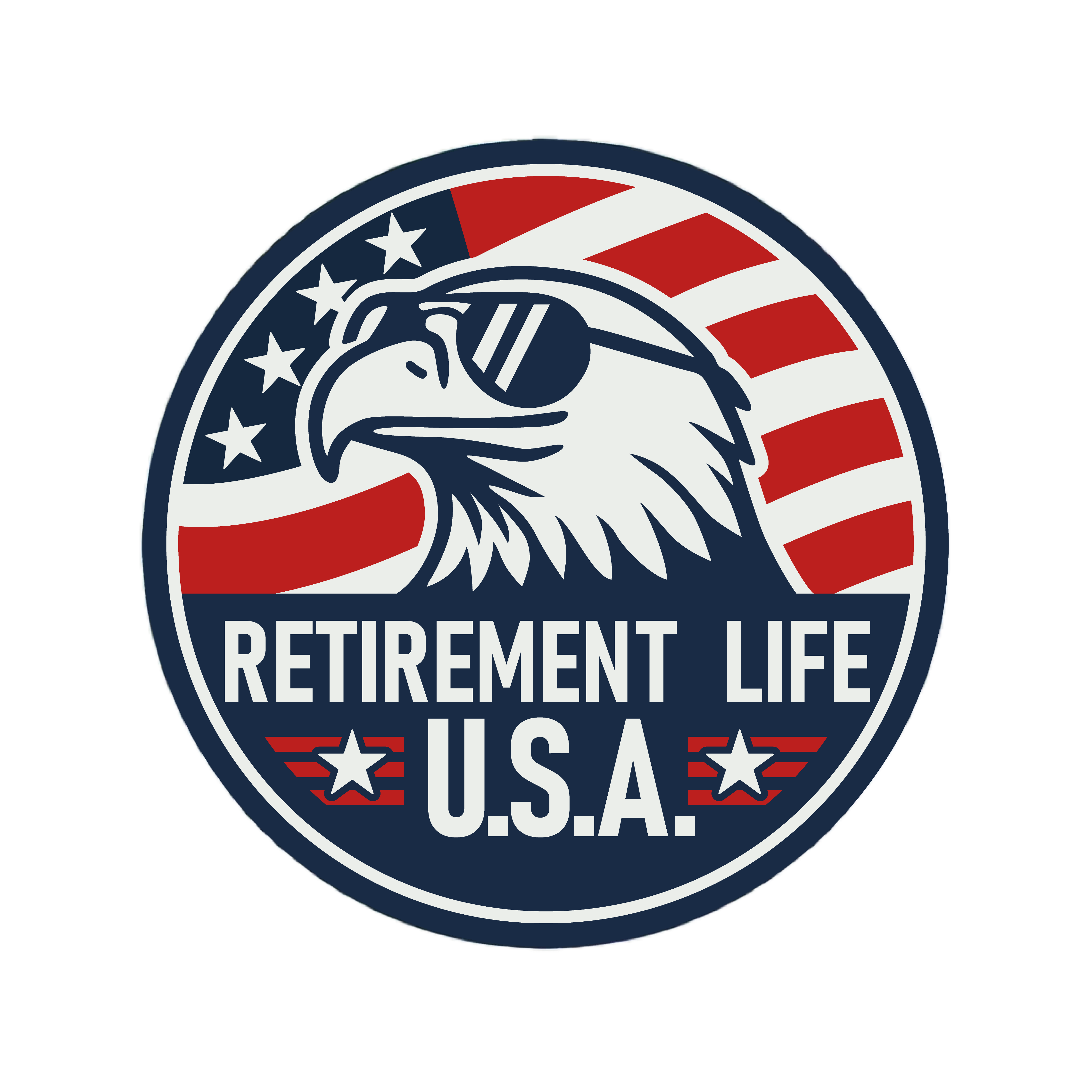Welcome to the Blog - Life After Work, With a Side of Truth
Hey there. You made it to the blog, nice job dodging all the clickbait.
Here’s where we talk about what really happens after you clock out for the last time. Retirement isn’t just about golf carts and early-bird specials (though we’re not knockin’ a good buffet). This blog dives into the real stuff, finding purpose, staying sane, and maybe even enjoying yourself a little while Uncle Sam tries to take another bite of your savings.
You’ll find:
Real talk about life after work. Helpful guides on how to retire without losing your mind (or your money) and a ton of listicles, best beach towns, worst tax traps, cheap spots that aren’t dumps, and all the places that either feel like heaven… or smell like regret.
It’s part inspiration, part information, with a sprinkle of sarcasm and a whole lotta heart.
Welcome to the Blog
Life After Work, With a Side of Truth

Why Retiring in an RV Might Be More Headache Than Heaven
Why Retiring in an RV Might Be More Headache Than Heaven
The idea of selling your house, buying a shiny RV, and hitting the open road in retirement sounds like something straight out of a movie. You picture sipping coffee with mountain views one week, then parking by the ocean the next. No yard work, no HOA meetings, no property taxes. Just freedom, adventure, and wide-open spaces.
But here is the reality check: retiring in an RV is not always the fantasy it appears to be. The road is not all scenic overlooks and campground potlucks. It can be expensive, stressful, lonely, and sometimes downright exhausting. Before you list your house and buy a big rig, let’s take a deeper look at why so many retirees regret going all in on RV life.

1. RVs Aren’t Cheap, and the Costs Keep Stacking Up
A lot of people look at an RV as a “downsizing” move, but it is more like trading one set of expenses for another. Sure, you are getting rid of the mortgage and the property tax bill, but that RV is not cheap.
Entry-level trailers can run you $6,000 to $30,000. A used Class C motorhome might set you back anywhere from $50,000 to $100,000. And those luxurious Class A motorhomes with leather couches, granite countertops, and full-sized fridges? You are looking at $500,000 and up, with some models selling for over $2 million.
And that is just the start. Insurance, maintenance, gas, oil changes, campground fees, storage fees, and repairs all add up. If you think RV life means your costs will plummet, you may be in for a rude awakening.
2. RVs Depreciate Faster Than You Can Say “Road Trip”
Unlike a house, an RV does not build equity. In fact, it is more like a car in that the value starts dropping the minute you drive it off the lot.
A new $120,000 motorhome could lose 20 percent of its value in the first year alone. Over ten years, it might be worth less than half what you paid. Add in wear and tear from the road, water damage, or upgrades that don’t hold their value, and it becomes clear: an RV is not an investment. It is a lifestyle expense.
3. Living Space Can Feel Like a Shoebox on Wheels
At first, downsizing might sound liberating. Who really needs three bedrooms, a basement, and a garage when you are retired? But spend a few weeks in 200 square feet with your spouse, and you may start to feel claustrophobic.
Even the largest RVs do not offer much space for privacy. If one of you is an early riser and the other is not, someone is always grumpy. If one of you likes to watch TV while the other reads, headphones become your best friend.
Living in close quarters requires patience, compromise, and a real sense of humor. Otherwise, the dream trip can turn into a never-ending episode of “Survivor.”
4. Driving an RV Is Not for the Faint of Heart
Have you ever tried making a U-turn in a 40-foot motorhome? It is not exactly like zipping around town in your sedan. RVs come with blind spots the size of a small house, take forever to brake, and can be nerve-racking to maneuver in tight spaces.
Backing into a campground spot while your neighbors watch with lawn chairs and popcorn is enough to raise anyone’s blood pressure. Add in high winds, mountain roads, and the occasional semi-truck flying past you, and the stress level spikes.
Some people take to it like pros, but others find the constant driving and parking challenges overwhelming.
5. Finding a Place to Park Isn’t Always Easy
This is one of the most surprising realities for many new RVers. You think, “It’s a giant country, there’s space everywhere.” But in practice, good campsites fill up fast. Popular parks can be booked months in advance.
Yes, some stores like Walmart or Cracker Barrel allow overnight parking, but not all do. Many towns have ordinances that restrict RV parking. That means more time spent hunting for a spot to sleep, sometimes after a long day on the road when you are already exhausted.
6. Loneliness Can Creep In
Retirement is not just about money, it is also about connection. Leaving behind your community, your friends, and your routines can be harder than you realize.
Sure, you will meet people at campgrounds, but most of those relationships are temporary. People come and go. Building lasting friendships is more challenging when you are always on the move. Over time, the constant goodbyes and lack of stability can lead to real feelings of isolation.
7. Repairs and Breakdowns Are Part of the Package
If you think homeownership comes with a lot of repairs, wait until you own an RV. The difference is that when something breaks in your house, at least you can still sleep in your bed. When something breaks in your RV, you may be stranded on the side of the highway or stuck waiting weeks for a part at a repair shop.
Plumbing leaks, electrical issues, blown tires, and broken appliances are all part of RV life. If you are handy, it is a little easier to manage. If not, you could end up spending thousands on repairs every year.
8. Everyday Life Is Not Always Convenient
Doing laundry in an RV usually means hauling clothes to a laundromat. Groceries might require driving miles out of your way. Medical appointments can be tricky if you are constantly changing locations.
Even simple things like mail delivery become complicated. Sure, you can use forwarding services or a P.O. box, but it is not as seamless as walking out to your mailbox.
9. You Might End Up Feeling Tied Down Instead of Free
Ironically, many retirees buy an RV thinking it will give them freedom, only to feel tied down by the constant planning, costs, and responsibilities. Instead of just picking up and going, you are scheduling campsite reservations months in advance, budgeting for fuel, and worrying about repairs.
It can start to feel less like freedom and more like a never-ending to-do list on wheels.
10. Try Before You Buy
The smartest move you can make if you are tempted by the RV lifestyle is to rent first. Spend a couple of weeks in a rental and see how you like it. Test the driving, the space, the logistics, and the costs.
You may love it, or you may discover that the fantasy does not line up with reality. Better to spend a little on a trial run than to make a six-figure mistake.
Final Thoughts
There is no denying that RV life has its appeal. The open road, the flexibility, the chance to see parts of the country you never would otherwise. For some retirees, it is the perfect fit.
But for many others, the financial strain, logistical headaches, and emotional toll outweigh the benefits. Before you go all in, be brutally honest with yourself about what you want out of retirement.
Do you crave adventure but also value stability? Do you want freedom, but not constant planning? Maybe the RV lifestyle works as an occasional trip, not a full-time commitment.
Retirement should be about enjoying life, not adding unnecessary stress. Think carefully before trading your front porch for the driver’s seat of a motorhome. The grass—or in this case, the highway—may not be greener on the other side.

Why Retiring in an RV Might Be More Headache Than Heaven
Why Retiring in an RV Might Be More Headache Than Heaven
The idea of selling your house, buying a shiny RV, and hitting the open road in retirement sounds like something straight out of a movie. You picture sipping coffee with mountain views one week, then parking by the ocean the next. No yard work, no HOA meetings, no property taxes. Just freedom, adventure, and wide-open spaces.
But here is the reality check: retiring in an RV is not always the fantasy it appears to be. The road is not all scenic overlooks and campground potlucks. It can be expensive, stressful, lonely, and sometimes downright exhausting. Before you list your house and buy a big rig, let’s take a deeper look at why so many retirees regret going all in on RV life.

1. RVs Aren’t Cheap, and the Costs Keep Stacking Up
A lot of people look at an RV as a “downsizing” move, but it is more like trading one set of expenses for another. Sure, you are getting rid of the mortgage and the property tax bill, but that RV is not cheap.
Entry-level trailers can run you $6,000 to $30,000. A used Class C motorhome might set you back anywhere from $50,000 to $100,000. And those luxurious Class A motorhomes with leather couches, granite countertops, and full-sized fridges? You are looking at $500,000 and up, with some models selling for over $2 million.
And that is just the start. Insurance, maintenance, gas, oil changes, campground fees, storage fees, and repairs all add up. If you think RV life means your costs will plummet, you may be in for a rude awakening.
2. RVs Depreciate Faster Than You Can Say “Road Trip”
Unlike a house, an RV does not build equity. In fact, it is more like a car in that the value starts dropping the minute you drive it off the lot.
A new $120,000 motorhome could lose 20 percent of its value in the first year alone. Over ten years, it might be worth less than half what you paid. Add in wear and tear from the road, water damage, or upgrades that don’t hold their value, and it becomes clear: an RV is not an investment. It is a lifestyle expense.
3. Living Space Can Feel Like a Shoebox on Wheels
At first, downsizing might sound liberating. Who really needs three bedrooms, a basement, and a garage when you are retired? But spend a few weeks in 200 square feet with your spouse, and you may start to feel claustrophobic.
Even the largest RVs do not offer much space for privacy. If one of you is an early riser and the other is not, someone is always grumpy. If one of you likes to watch TV while the other reads, headphones become your best friend.
Living in close quarters requires patience, compromise, and a real sense of humor. Otherwise, the dream trip can turn into a never-ending episode of “Survivor.”
4. Driving an RV Is Not for the Faint of Heart
Have you ever tried making a U-turn in a 40-foot motorhome? It is not exactly like zipping around town in your sedan. RVs come with blind spots the size of a small house, take forever to brake, and can be nerve-racking to maneuver in tight spaces.
Backing into a campground spot while your neighbors watch with lawn chairs and popcorn is enough to raise anyone’s blood pressure. Add in high winds, mountain roads, and the occasional semi-truck flying past you, and the stress level spikes.
Some people take to it like pros, but others find the constant driving and parking challenges overwhelming.
5. Finding a Place to Park Isn’t Always Easy
This is one of the most surprising realities for many new RVers. You think, “It’s a giant country, there’s space everywhere.” But in practice, good campsites fill up fast. Popular parks can be booked months in advance.
Yes, some stores like Walmart or Cracker Barrel allow overnight parking, but not all do. Many towns have ordinances that restrict RV parking. That means more time spent hunting for a spot to sleep, sometimes after a long day on the road when you are already exhausted.
6. Loneliness Can Creep In
Retirement is not just about money, it is also about connection. Leaving behind your community, your friends, and your routines can be harder than you realize.
Sure, you will meet people at campgrounds, but most of those relationships are temporary. People come and go. Building lasting friendships is more challenging when you are always on the move. Over time, the constant goodbyes and lack of stability can lead to real feelings of isolation.
7. Repairs and Breakdowns Are Part of the Package
If you think homeownership comes with a lot of repairs, wait until you own an RV. The difference is that when something breaks in your house, at least you can still sleep in your bed. When something breaks in your RV, you may be stranded on the side of the highway or stuck waiting weeks for a part at a repair shop.
Plumbing leaks, electrical issues, blown tires, and broken appliances are all part of RV life. If you are handy, it is a little easier to manage. If not, you could end up spending thousands on repairs every year.
8. Everyday Life Is Not Always Convenient
Doing laundry in an RV usually means hauling clothes to a laundromat. Groceries might require driving miles out of your way. Medical appointments can be tricky if you are constantly changing locations.
Even simple things like mail delivery become complicated. Sure, you can use forwarding services or a P.O. box, but it is not as seamless as walking out to your mailbox.
9. You Might End Up Feeling Tied Down Instead of Free
Ironically, many retirees buy an RV thinking it will give them freedom, only to feel tied down by the constant planning, costs, and responsibilities. Instead of just picking up and going, you are scheduling campsite reservations months in advance, budgeting for fuel, and worrying about repairs.
It can start to feel less like freedom and more like a never-ending to-do list on wheels.
10. Try Before You Buy
The smartest move you can make if you are tempted by the RV lifestyle is to rent first. Spend a couple of weeks in a rental and see how you like it. Test the driving, the space, the logistics, and the costs.
You may love it, or you may discover that the fantasy does not line up with reality. Better to spend a little on a trial run than to make a six-figure mistake.
Final Thoughts
There is no denying that RV life has its appeal. The open road, the flexibility, the chance to see parts of the country you never would otherwise. For some retirees, it is the perfect fit.
But for many others, the financial strain, logistical headaches, and emotional toll outweigh the benefits. Before you go all in, be brutally honest with yourself about what you want out of retirement.
Do you crave adventure but also value stability? Do you want freedom, but not constant planning? Maybe the RV lifestyle works as an occasional trip, not a full-time commitment.
Retirement should be about enjoying life, not adding unnecessary stress. Think carefully before trading your front porch for the driver’s seat of a motorhome. The grass—or in this case, the highway—may not be greener on the other side.
FOLLOW US
COMPANY
LEGAL
DISCLAIMER: This information is produced solely for educational and entertainment purposes. It should not be considered a source for financial, accounting, tax, or legal guidance. For advice on financial or legal matters, please seek assistance from a qualified financial advisor or lawyer.
Opinions expressed herein are solely those of Retirement Life U.S.A.
Copyright 2025. Retirement Life U.S.A. All Rights Reserved.


Facebook
Youtube
X
Website